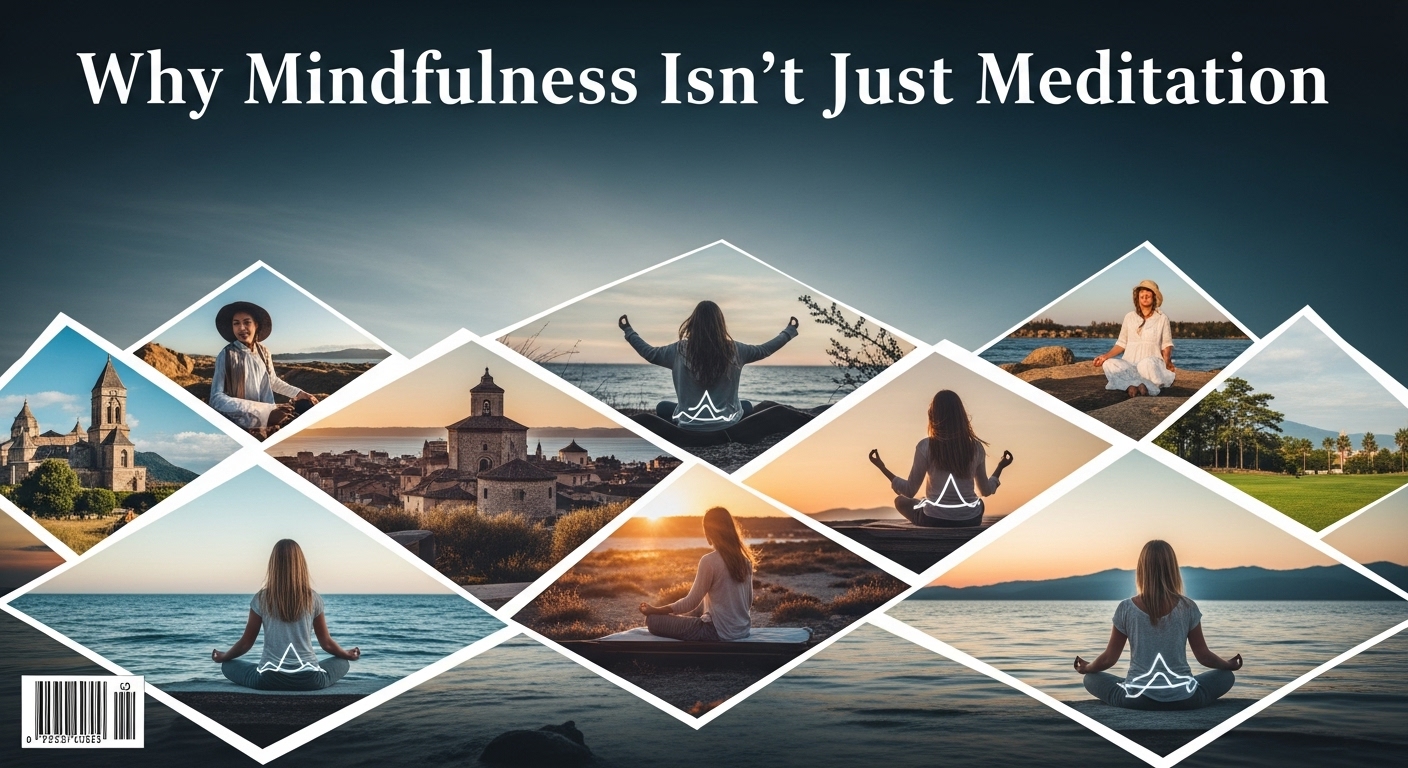Why Mindfulness Isn’t Just Meditation
In recent years, the word mindfulness has become almost synonymous with meditation. While the two are closely linked, mindfulness is far more than just sitting quietly with your eyes closed. It’s a way of living — a conscious awareness of your thoughts, feelings, and actions in every moment.
Understanding Mindfulness
Mindfulness is the practice of being fully present and aware of what you’re doing, thinking, and feeling — without judgment. It’s about noticing the little things: the warmth of your morning coffee, the rhythm of your breathing, or the tone of a friend’s voice during a conversation.
Unlike meditation, which is a specific activity done for a set period, mindfulness can be woven into every part of your day. It’s not confined to the cushion — it’s an ongoing awareness that helps you reconnect with the present.
The Difference Between Meditation and Mindfulness
Meditation is a technique. It’s often structured — involving breathwork, focus, or visualization to train your mind. Mindfulness, on the other hand, is the result of that training.
Think of meditation as going to the gym for your mind, and mindfulness as the strength and flexibility you build and use throughout the day. You might meditate for 15 minutes, but you can practice mindfulness during a conversation, while driving, or even when doing the dishes.
Mindfulness in Everyday Life
You don’t need a quiet room or incense to be mindful. You can bring mindfulness to your everyday activities by:
-
Eating slowly, savoring every bite and noticing textures and flavors.
-
Listening actively, giving others your full attention without planning your response.
-
Walking consciously, feeling the ground beneath your feet and the rhythm of your steps.
These simple practices ground you in the present moment, reducing anxiety and improving focus.
The Science Behind Mindfulness
Studies show that mindfulness can rewire the brain, enhancing areas linked to emotional regulation and reducing activity in regions associated with stress. Regular practice can improve concentration, boost empathy, and even strengthen your immune system.
While meditation is one way to cultivate mindfulness, consistent mindful living extends those benefits into your daily routine, creating long-term emotional resilience.
Final Thoughts
Mindfulness isn’t about escaping reality — it’s about fully engaging with it. Meditation is one doorway to mindfulness, but not the only one. Every breath, movement, and conversation is an opportunity to practice awareness and presence.

